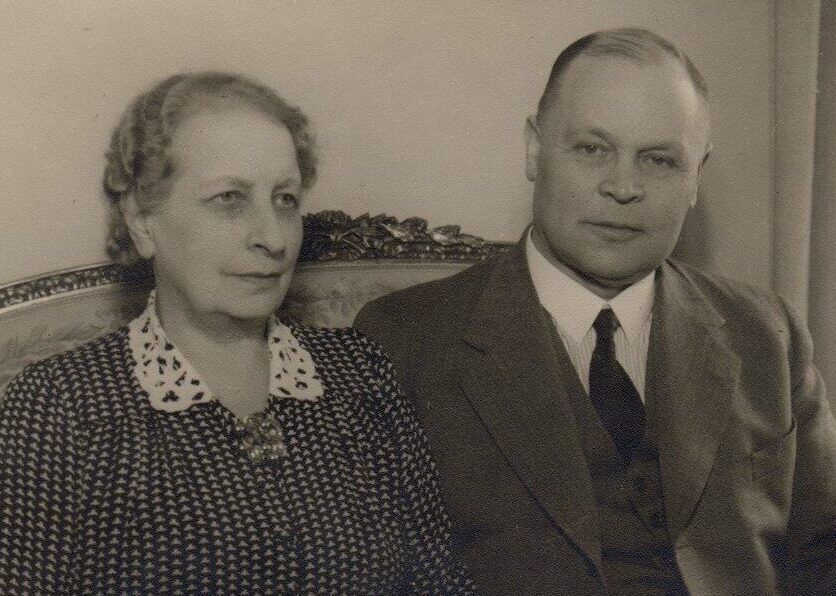About Us

We build the fundamental conditions for a thriving society by enabling science, art, and social activities.
Jenny and Antti Wihuri Foundation is an independent Finnish non-profit foundation operating in the fields of science, art, and civil society activities, as well as at their intersections. The foundation’s mission is to create opportunities to realize, encounter, and experience these three areas of life.
Our goal is to be a multidisciplinary and open-minded foundation that draws lessons from its history but also dares to embrace the new.
During its existence, the Foundation has distributed the equivalent of nearly 500 million euros to help build a better tomorrow. In 2025, we have allocated a little over 16 million euros to support research, the arts, and social initiatives.
How we operate
Jenny and Antti Wihuri Foundation is a combination of a grant-awarding and an operational foundation. While we primarily support the projects of others, we also form partnerships and carry out our own initiatives.
At the core of our work is an annual open grant application call for science, art, and civil society. In addition to this, the foundation maintains the Wihuri Research Institute, which conducts biomedical research, actively engages in the visual arts sector, and awards prizes and donations.
We also collaborate closely with other foundations, universities, and various organizations. This includes participating in joint grant pools, launching large-scale projects through partnerships, and organizing a variety of events.
Our values
The foundation is financially solid, independent in its decision-making, and a reliable actor.
Science and art are essential to building Finnish society and developing culture.
In science, we recognize the importance of long-term fundamental research as well as its application. In large research projects, we encourage systemic thinking, interdisciplinarity, and societal impact.
We also acknowledge the intrinsic value of art and its role in enhancing well-being and serving as a critical voice in public discourse.
We listen closely to the evolving needs and perspectives of society, respond swiftly to initiatives aligned with the foundation’s mission and actively seek new collaboration opportunities.
Our operations are characterized by minimal bureaucracy, yet they are guided by strong ethical principles, including fairness, honesty, reliability, and respect for sustainable societal development.
The foundation respects diversity and promotes accessibility and equality. We fund projects that enrich Finnish society or enhance the international visibility of Finnish science and art. Patriotic thinking cannot be in conflict with the promotion of diversity and equality.
To us, patriotism means appreciating the Finnish language, culture, and natural environment. As an open civil society and a state governed by the rule of law, Finland is an integral part of the global community.
The foundation takes a proactive approach in launching significant initiatives that align with its goals. While the traditional, application-based grant process remains central to our mission of fostering intellectual and cultural development, we also initiate and support major projects.
The Wihuri Research Institute and the Wihuri Laboratory for Physics Research at the University of Turku continue to be key areas of focus. Additionally, we fund new research initiatives, such as strategic university research programs and collaborative projects.
In the arts, we are committed to expanding and nationally utilizing the Jenny and Antti Wihuri Collection at Rovaniemi art museum, as well as supporting museum projects and initiatives that improve access to the arts.

Where our funds and mission come from
Our work today is made possible by the far-sightedness of philanthropist couple Jenny and Antti Wihuri who established the Foundation in 1942, when Finland was still a poor country in the midst of war.
The original purpose of Jenny and Antti Foundation was stated as follows: ”to promote and support Finnish cultural and economic development and also in the present circumstances to contribute to the reconstruction of Finland in various forms. Likewise, the purpose of the Foundation is to strengthen the patriotic will to defend our country”.
Interpreted in modern terms, the purpose of the Foundation is to create prerequisites for a thriving society by enabling research, art, and societal activities. The eight-membered Board of Trustees is tasked with considering how the foundation can best fulfill its purpose in each era while respecting the original will of its founders.
Jenny and Antti Wihuri donated the foundation’s initial capital of 30 000 000 Finnish marks in 1942. In addition to this, the founders added to the Foundation’s initial capital through further donations. The Foundation’s activities are covered by profits generated by asset management, making us financially independent. You can read more about our finances here.
Rules
Rules of Jenny and Antti Wihuri Foundation
The rules of Jenny and Antti Wihuri Foundation correspond with the requirements of the new foundation law which came to effect December 1st 2015. The Finnish Patent and Registration Office affirmed the Foundation’s rules April 18th 2016.
You can review the official rules here
Rules for Conflict-of-interest
The decision-making of the foundation follows the conflict-of-interest rules approved by the Board of Jenny and Antti Wihuri Foundation, especially in the distribution of grants and awards. The foundation’s decision-making is based on accuracy, impartiality, and objectivity.
Decisions on awarded grants and prizes are made by the Board of Jenny and Antti Wihuri Foundation or its authorized financial committee. The Board and the financial committee typically rely on the recommendations of expert panels or individual experts in selecting grant and award recipients.